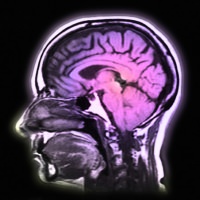Forgetting Addiction
When a stroke victim and two-pack-a-day smoker woke up having forgotten his habit, researchers went looking for the damaged part of his brain that seemed to have switched off his cravings. Having found it, scientists are hoping to discover new methods to understand and treat addiction.
When a stroke victim and two-pack-a-day smoker woke up having forgotten his habit, researchers went looking for the damaged part of his brain that seemed to have switched off his cravings. Having found it, scientists are hoping to discover new methods to understand and treat addiction.
Your support matters…AP:
WASHINGTON — Damage to a silver dollar-sized spot deep in the brain seems to wipe out the urge to smoke, a surprising discovery that may shed important new light on addiction. The research was inspired by a stroke survivor who claimed he simply forgot his two-pack-a-day addiction – no cravings, no nicotine patches, not even a conscious desire to quit.
“The quitting is like a light switch that went off,” said Dr. Antoine Bechara of the University of Southern California, who scanned the brains of 69 smokers and ex-smokers to pinpoint the region involved. “This is very striking.”
Clearly brain damage isn’t a treatment option for people struggling to kick the habit.
But the finding, reported in Friday’s edition of the journal Science, does point scientists toward new ways to develop anti-smoking aids by targeting this little-known brain region called the insula. And it sparked excitement among addiction specialists who expect the insula to play a key role in other addictions, too.
Independent journalism is under threat and overshadowed by heavily funded mainstream media.
You can help level the playing field. Become a member.
Your tax-deductible contribution keeps us digging beneath the headlines to give you thought-provoking, investigative reporting and analysis that unearths what's really happening- without compromise.
Give today to support our courageous, independent journalists.






You need to be a supporter to comment.
There are currently no responses to this article.
Be the first to respond.